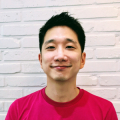You have no items in your cart. Want to get some nice things?
Go shopping
Hayun Jung taught me that fiction is the art of the perspective. What makes a story itself is its vantage point with its particular limitations and freedoms. A story about a woman who throws herself in front of a train is journalism. A story about a woman who leaves her husband is gossip. A story about a woman whom the narrator is close (and far) enough to chart every change of heart and shade of thought, that’s Anna Karenina.
*
What is cunning? It’s not book-smarts. Like Matilda’s mother, I’d thought I’d chosen looks instead of books. But somehow, I ended up with three bachelor’s degrees and a master’s. My own home institution rejected me from their PhD program, their gentle way of telling me to please get a life.
So I went on to translate books. I’m translating another book right now, in fact. But it took me a very long time before I wrote a book myself, or at least a book an agent wanted to take on. Before that, all throughout my teens, twenties, and most of my thirties, I wrote books. I started many and finished five of them. They failed. My book-smarts failed me.
Cunning is, surely, street-smarts. I am not, in any kind of way, street-smart. My husband marvels at my inability to retain any information on streets or locations. I would say, “Oh look, there’s a new Starbucks on this street!” and he would reply, “You’ve said that at least three times now.”
One time in LA, I had to get something out of the trunk of a car my friend had just street-parked. As soon as I did, he started the engine to re-park the car.
“Why? Are we on a no-parking curb?” (Look at me being all street-smart!)
“Naw, someone on the street might have seen we have stuff in the trunk and might try to steal your luggage.” (Oh.)
Street-smarts. I marveled at it. The ability to think like a criminal. And how do criminals think? They can slip into the minds of their victims to see what they see, hear what they hear, think what they think. They think with cunning.
And that’s what cunning is. The ability to slip into another perspective.
*
Joyce could’ve had an academic career. He famously opted for cunning (and silence and exile) instead. I might’ve kept reapplying for my PhD and embarrassed Seoul National University into letting me enter. But would a fifth university degree have taught me cunning?
Academia is a hierarchical power structure where students learn to write, talk, and act like the people in power (professors). The perspective you are taught to slip into is that of power, and your individuality as a successful scholar depends on how well you can incorporate your marginality into the pre-existing structure of academia. This is cunning in a way, but in a very particular way, and not everyone is going to be satisfied with it. It’s what that cliché really means, about reading being the only thing that teaches writers how to write. Reading helps you think like a criminal. Academia helps you think like the police.
So much for reductive metaphors, but do take away the takeaway. Fiction depends on where you stand within (and without) the story. Good fiction could be within the character or beyond, intradiegetic or extradiegetic, close or far, it could be hiding anywhere in the topography of the story. Cunning is the ability to find it.
*
I wonder if you’ve read that Ted Hughes poem about the thought-fox. I said it was a poem, but sometimes, I think it’s fiction. It’s a narrative that starts out from a writer’s perspective and slips into a very close third-person (third-fox?) perspective before slipping back into first-person and the thought-fox ending up on the page, both the literal page in front of the reader and the hypothetical one Ted Hughes’s speaker is writing on. It’s Ted Hughes being cunning as a fox.
But why did Ted Hughes think like a writer thinking like a fox, instead of just thinking like a fox? Because the perspective of the former yields a much more interesting story than the latter.
There’s more to this poem, however.
Last year, I was asked by Litro to write an article on queer Korean literature. It had been such a long time since I was asked to write instead of translating that I hemmed and hawed for ages before whipping something up and sending it in. I thought no more of it until I received the physical magazine in the mail, which was when something caught my eye.
My name was on the cover. Sandwiched between Bae Suah’s and Yi Sang’s, both writers I’d admired for decades.
It took a moment to sink in. Why is my name on the cover? I was so sure of my identity as a translator—where disappearing from the page is a virtue, although that’s changing fast—that I had to be reminded that I’d written something, not translated it, and here I was, “Anton Hur” the writer, not “Anton Hur” the translator. Bae Suah, Anton Hur, Yi Sang. Bae Suah, Anton Hur, Yi Sang.
I was used to literary cunning. I’ve had to pretend I was Kyung-Sook Shin, Kang Keyong-ae, Hwang Sok-yong, Jeon Sam-hye—any of the many writers I translate (my colleague So J. Lee describes me not as “cunning” but “promiscuous”). It was funny that I didn’t know how to pretend to be Anton Hur, the writer. He had been kept in the dark for so long that I couldn’t recognize him in the daytime with his clothes on.
In the end, it’s the writer in “The Thought Fox” who’s the real point of the poem, not the fox. Not Ted Hughes, the man physically writing the poem. Ted Hughes did not write the poem to describe a fox, or even to describe a writer thinking like a fox. He wrote it to describe a writer thinking like a writer.
Maybe that’s the ultimate use of cunning for a writer. To slip into your writer-you, your thought-fox, your other voice. To imagine yourself as a writer.

About Anton Hur
Anton Hur was born in Stockholm and currently resides in Seoul. His writing and translations have appeared in Words Without Borders, Asymptote Journal, Slice Magazine and others. He is the recipient of a PEN Translates award from English PEN, a Daesan Foundation literary translation grant, and multiple LTI Korea translation grants.




Thank you for this information.
Take Flight to India, from different parts of the world. India E-visa providing facility to many countries, now Indian Visa is very simpler easier cheaper find out ur visa solutions.